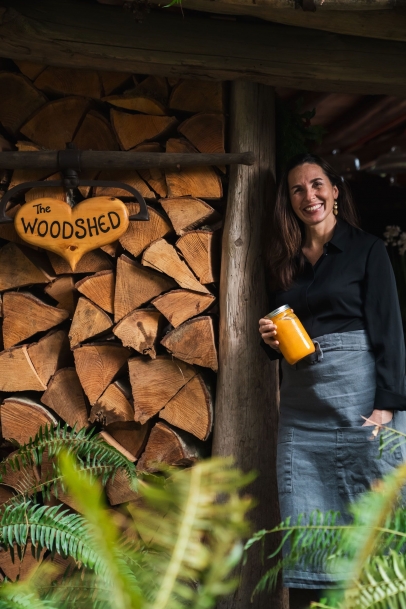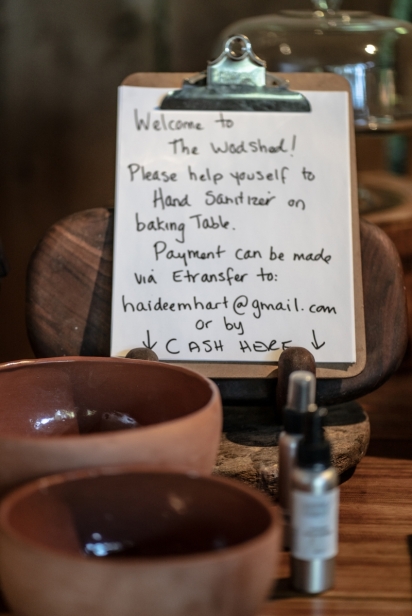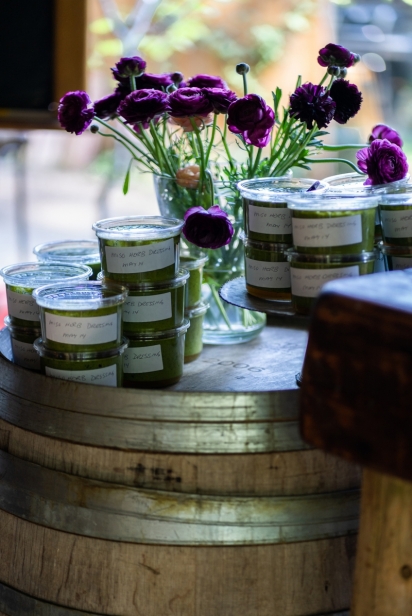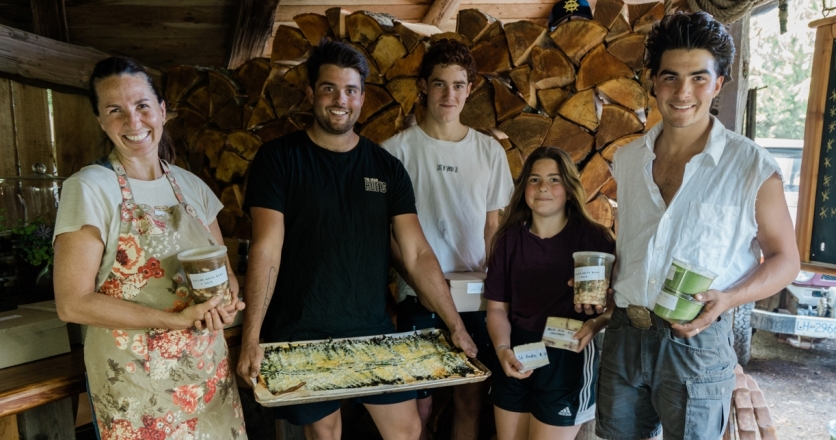Haidee Hart
Haidee Hart is smitten with her new kitchen—and who wouldn’t be? Her husband, Josh, and son Aliah built it for her, mostly from salvaged wood. It looks out over her garden and features copper accents, a custom 10-burner Garland stove and “a gorgeous arbutus slab island” made by her son. “It’s really pretty,” she says delightedly. “It’s utilitarian, but quite feminine.”
This is, to be sure, no ordinary family kitchen. It is the command centre of a growing enterprise to feed her neighbours on Salt Spring Island. And one day, it might just help feed the rest of the world, too.
Hart is a largely self-trained chef who describes her cooking as “hyper-hyper local.” That’s how she’s eaten since she was a little kid, moving around the B.C. coast for her dad’s logging jobs. She and Josh moved to Salt Spring Island (where he is from) 25 years ago to raise their family. A decade later, she began cooking at Stowel Lake Farm, an organic farm that hosts mindfulness, yoga and life skills retreats. For the next 15 years, she cooked the farm’s bounty for guests, hosted special dinners, taught cooking classes, travelled to France and Italy to learn about food, and occasionally staged at restaurants like Chez Panisse and Quince in San Francisco.
“I was really steeped in that whole farm food culture,” she says. “It really complemented my whole inclination to cook with wild things. And it was a really incredible opportunity to connect people.”
Then in 2019, she and her husband bought a property in a remote part of the island. “It was time to build our own place and leave the retreat world,” she says. Her plan was to keep teaching, travelling and doing private dinners with other chefs and winemakers.
And then the pandemic hit.
It put an end to long-table dinners and jetting off to Italy, of course, and it brought her whole family—sons Aliah (23), Noah (19), Jacob (16), and daughter India (11)—home under one roof. It also launched a whole new career.
When people started quarantining at home, she realized, “We have this amazing neighbourhood full of people who need food.” So she put some jars of homemade soup in her woodshed and made them available to anyone who was hungry. “It took off and never stopped,” she says. “Now it’s officially Woodshed Provisions and it’s so busy I can’t keep up.”
She has a dozen soups in rotation and has added baked goods, curries and jarred salads to her repertoire, all seasonal, local and vegetable-forward. “I’m connected with the growers on the island so people are leaving stuff on the porch, which is really inspiring,” she says. (In true Salt Spring fashion, she uses an honour cash system, with customers leaving payment in a hand-carved bowl set inside a tree stump, and she insists she hasn’t lost a single dollar.)
But Hart has bigger plans than just making soups and scones for her neighbours.
“We’ve partnered up with a really incredible person here on the island,” she says. She’s referring to David Marshall, who grew up with Hart’s husband and then went on to become a successful tech entrepreneur. He was the director of Internet services for the 2010 Olympic Games and has worked on every Olympics since, as well as with other major sports brands, through his company, Digital Brand Services. But he wants to do something more: he wants to transform what he sees as a hugely flawed food system and “fundamentally change the way we eat,” in a way that just happens to fit with Hart’s ideals. Now, Marshall says, “We are attempting something very disruptive.”
They are creating We Are What We Eat, a totally sustainable, ultra-low-waste food distribution system that delivers high-quality, preservative-free, plant-based meals made by chefs from locally and ethically farmed ingredients. Food is packaged in beautiful wooden crates and glass jars, using zero single-use materials. Delivery vehicles are electric. And costs are kept low enough to make the meals accessible to everyone.
They started locally on Salt Spring with a pilot program of 33 customers in November. They aimed to double that in January, with the goal of having 300-plus customers on the island by April. They plan to expand to Victoria and Vancouver by the end of 2021, then across Canada and, eventually, around the world.
“It’s been incredibly well-received. Even pre-COVID there was such a need for it,” says Hart. “The goal for me would be to do it in a way that we all feel we’re 100% making a difference. People are literally hungry for it.”
Meanwhile, Hart still plans to get back to teaching and hosting dinners from her beautiful new kitchen as soon as circumstances allow. “I really miss the dinners,” she says. “That’s my most creative moment. It’s that moment to tell the story of the farmer and the fisherman and the harvester. It really makes a difference in people’s lives.”
After all, she adds, “If you can share food that’s good and healthy and delicious, and also that warm feeling—I feel pretty good about that.”








